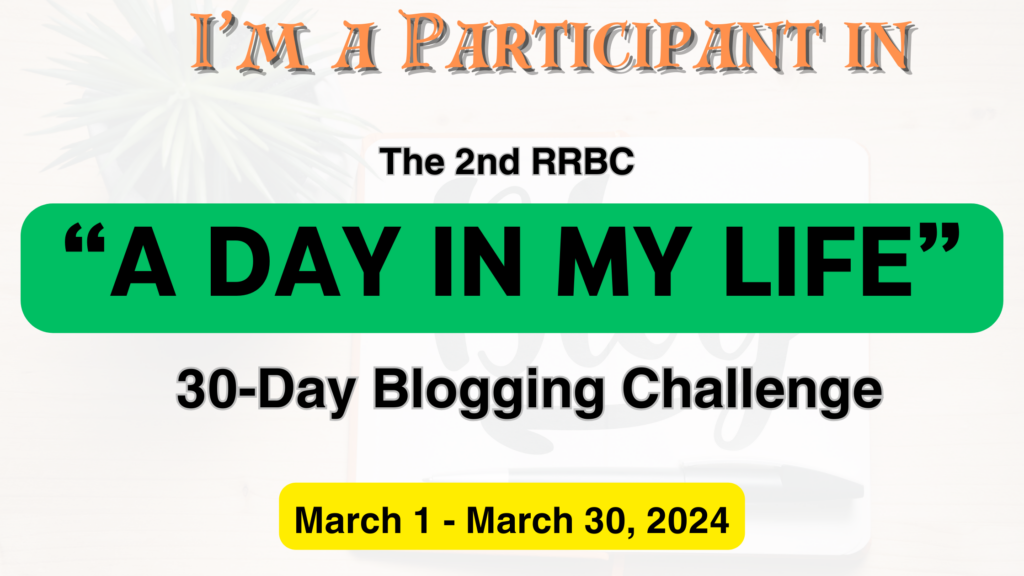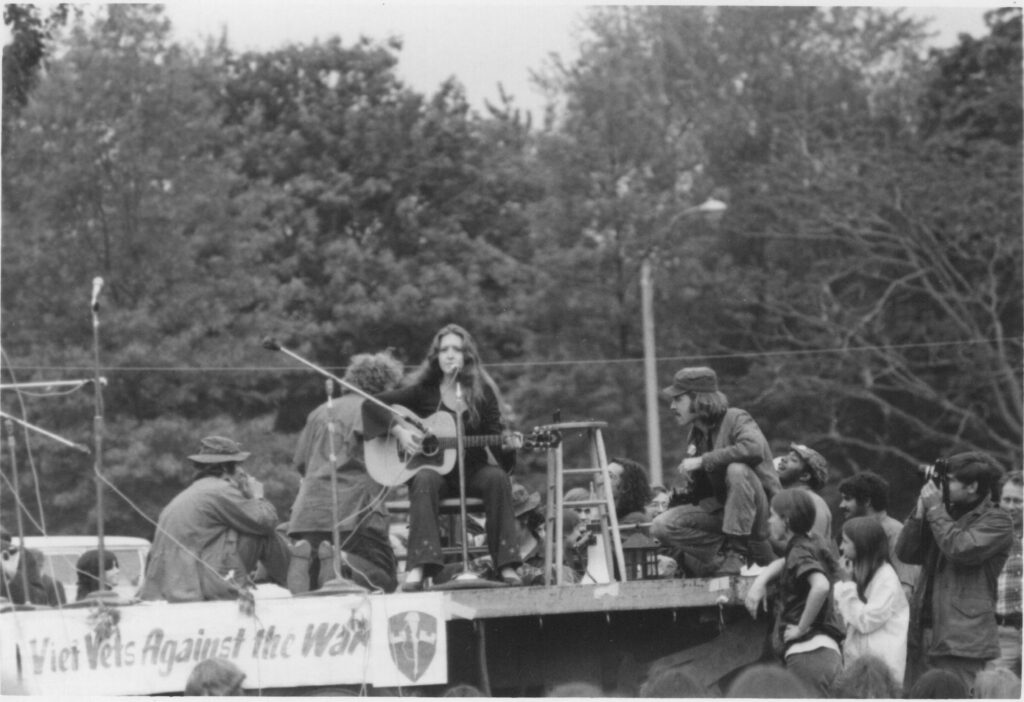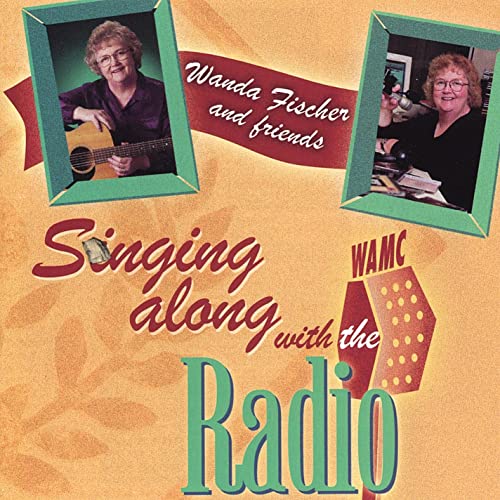
Today I’ve been thinking about days gone while considering the fact that today is Vietnam Veterans Day.
My husband is a Vietnam Veteran, but perhaps not your “typical” one. He was a conscientious objector. His draft number in 1970 was 20, so he knew for sure he would be drafted as soon as he graduated from Boston College. He had originally been a member of BC’s ROTC (Reserve Officers’ Training Corp), but, after just about a semester of Jesuit education, he decided he couldn’t continue on that path. He was a conscientious objector, meaning he would be unable to carry a weapon into war.
He did much soul-searching to come to this conclusion. He could have, like so many of our contemporaries, fled to Canada to avoid the draft, or sought alternative service in medical organizations stateside. He looked at what was happening in the United States and decided that his life, as a privileged White man, was not worth any more than that of a poor, uneducated man of any race. He saw that so many young men were being drafted and sent to Vietnam as an alternative to being incarcerated, or, truthfully, in his opinion, as an alternative to being educated.
We also knew several young men of similar age who chose to serve time in prison rather than be drafted into the armed services. That’s where their consciences sent them. One of them, Scott Alarik from Minnesota, spent two years in prison and was in the process of writing about that experience when he passed away about two years ago without completing his manuscript.
Our country was so divided at that time, but perhaps not as divided as it is now. I recall having actual civil discussions with people with whom I disagreed back then (including my own parents, whose philosophy was “my country, right or wrong”). I worked on a U.S. Navy project at the time, and those Navy guys used to make fun of anyone who was against the Vietnam war. However, they had nothing bad to say about Bill Fischer and his decision to follow his conscience and tell the Army that, although he would undergo basic training, he would not carry a weapon.
He became a medic, although he didn’t see any battle-related action. What happened during those eight months and twenty-two days when he was in country was that he decided that he would go to medical school when he was discharged from the Army. Problem was, he had been an English major at Boston College and hadn’t taken any science classes as an undergraduate. He had to start all over with a science curriculum when he returned.
As for what I was doing all along, I did protest the war in Vietnam. I did not and would not blame the returning GIs for what had happened to them while they were serving. My friend Claire, whom I wrote about a few blogs ago, my other friend Charlotte, and I volunteered to help some of the returning guys to find jobs by reading classified newspaper ads and filling out applications with them. If we thought they needed more than our sparse volunteer help, we would tell the person running the program, and she would alert the Veterans Administration in Roxbury.

Bonnie Raitt singing at a Vietnam Veterans Against the War Rally, Boston Common, circa 1972
Some times I look back on those days and wonder what my friends and I might have done differently to be better citizens or to discourage the dissent that was going on during those times. But on the other hand, I know we were involved in some lively discussions that would be impossible to have today. Today, people who disagree have simply dug their heels in and put their fingers in their ears and say, “La, la, la” because they don’t want to hear what the other side has to say. This is on both sides of the political spectrum.
I wonder if those seeds were planted during the Vietnam war days when some people treated returning veterans with disdain. I did not witness that personally, and my husband said he did not experience that when he was in uniform. I cannot even remotely imagine what going to war means. I read books and stories about it but haven’t experienced it. I do know that I attended many anti-war rallies back then, and I still believe that war must be the last approach to solve any nation’s problems.
To our Vietnam Veterans–I cannot say enough to honor you and those whose names appear on the wall in Washington, D.C. To the spouses and families of those who died or remain missing in action: Your pain is something most of us will never endure. And to the people who might call prisoners of war–whether survivors or buried with honor in Arlington National Cemetery–“losers”–my heart breaks for your insensitivity and insults to humanity. We are Americans. We are not losers.


What a wonderful piece, Wanda. Although I come from a family of service folk, I don’t know what it means to have gone and served… or even sacrificed (personally). But I do so greatly appreciate the service and sacrifice of those brave soldiers – male and female… and their families.
I admire you, Wanda, because you walk your talk, and it’s evident by your writing. Thank you for all that you did and stood for then, and thank you for your service now.
March on, civilian soldier. March on!
Thank you, Nonnie. I’m not quiet at all (I guess you figured that out a long time ago!). I still wish I could get more people to join RRBC. I so appreciate everything I’ve learned from my compatriots here. I still wish I could figure out, too, how I found RRBC in the first place!!
Hello, Wanda,
I am not sure, but a lot of the war in Vietnam started with the Johnson Administration not telling us the truth. Many of the black Americans protested because we were not free in our own country, and the USA was expecting us to give up our lives for something we didn’t have in our own country. The college kids saw the discrepancies in our country. The Black Power Movement started with Bobby Seale, Eldrige Cleaver, H. Rap Brown, Angela Davis, and many others. Besides that, many black soldiers were getting killed, and we thought they were primarily targeted to go to Vietnam.
I believe some of the sense of dissonance came out of these times––to divide and conquer.
It is the same thing happening today between the Hamas and Israel, in my opinion.l
Shalom shalom
Hi Pat–I think it went back even further–to the JFK administration, which, of course, morphed into the Johnson administration. I think the fact that so many Black soldiers went to Vietnam was one of the reasons my husband decided his life wasn’t worth any more than anyone else’s life. He learned a lot about race relations when he was there. I was involved in the Civil Rights movement and the anti-Vietnam war movement. Divide and conquer was one part of things. It’s even more intense now with social media.
I will never forget the first time I went to Mississippi and saw the conditions people were living in. When Robert F. Kennedy made a trip there, he was stunned. Some days I think about how things might have changed had MLK Jr. and RFK had not been assassinated. But we need to continue to work and hope.
Wanda, thank you for your outstanding post. My Dad did three tours during the War. In two 3-month deployments, he flew tanker planes to refill B-52s on their way from Guam. His last tour (one year) was in Saigon. He fly an O1 spotter plane to identify targets near the city. He would shoot smoke rockets at the enemy encampments. Fortunately, he was never injured, although his plane was hit with gunfire.
That last deployment changed my family permanently. My mother was not a strong woman, and it really broke her.
My daughter’s father-in-law was also a medic. He saw extensive action. That marred him for years.
The war was a waste of our precious blood and money. Ultimately, it accomplished nothing. That is our government.
So true, Karl. My father-in-law flew the same type of planes during WWII. He flew supplies into the Burma Road. He never talked about his war service, until when he was in a nursing home and he told me some stories. One of the things he said was that the Tuskegee airmen were fine pilots, and they should have had the same chance that he had to be hired by a commercial airline (he flew for many years for the now-defunct-TWA). However, due to their race, the Black pilots weren’t given the chance. A waste of precious blood and brains there, too. Thanks for your comments. I have appreciated them all months long.
Thank you, Wanda! I was surprised when we went to our Lenten Friday Fish Fry at the American Legion and they gave me a “free” meal because I am a Vietnam Veteran. It’s only been three years since the President signed March 29th as National Vietnam Veterans Day. However, some people are still not aware of this special day. Note: it is estimated that only 800k Vietnam Veterans are alive today…thanks primarily to Agent Orange. Give Bill Fischer a hug from me and thank him for his service and sacrifice. Even as a CO, he went to war and ended up saving many lives during his time there. Thank you, too, Wanda, for trying to end the war.
Thanks, John. I will give Bill a hug when I get home from the radio station tonight. I’m still here. I wanted to look at people’s posts before it was, well, tomorrow! I so appreciate your having written about your experiences. It was difficult for me to read your posts and your blog at first, but your sincerity shines through.
Now you can give Scarlett a hug for me. Some leftover chocolate may be coming your way!
🙂
Hi, Wanda,
Thank you for reminding us that it is Vietnam Veterans Day, and for sharing about your husband’s conscientious objector status and your anti-war protests.
During those years, I lived in Europe while my dad served in the Civil Service on base in Italy. He’d served in the Army during WWII and Korea, and survived as a decorated battle veteran. He’d retired before Vietnam, and was never called back up for duty, thank God. We read about the protests and about how our young men were treated when they returned home. Since our news source was The Stars and Stripes newspaper, it might have been biased.
Having read John’s books, I feel I have a much better understanding now than I did then. Of course, it’s a bit too late to protest that war.
Blessings, and Happy Easter!
Patty
Hi Patty–I think John’s books have made a great difference in opening people’s eyes to what actually happened in Vietnam. We need more and more first-hand accounts. I wish my husband would sit down and write even a short story about things he encountered. He won’t. I still have a few boxes of letters from him. I may just put them together and write something myself when he’s not looking!
Happy Easter to your and your family!
Wanda, I’m so glad you feel that those who fought are not losers. A certain orange person would differ with you. As you know, I lost my brother in that horrid place. Sadly “friendly fire” is what killed him; not the fighting he endured, but trying to get some rest and relaxation is what did him in. And they don’t talk about it either. Imagine the pain of having to live with that for the rest of your life. It’s indescribable.
I lost a lot of friends and acquaintances. Some did go to Canada to avoid it but what does that say about Canada? That was senseless, as is all wars, in my opinion.
Have a wonderful rest of your day Wanda.
Friendly fire is something I didn’t learn about until someone from my graduating class met the same fate. I asked my father to explain it to me and he just walked away. Senseless. War is.
What an inspiring post ,Wanda, The only real connection to war I experienced I recall on a personal level was when my brother John, was conscripted for two years during the 50’s in the U.K. He seved most of his time in Germany. He did not see active service.
However, my step son Philip did when he went to the Falklands, and Northern Ireland. We were in fear and trepidation all the time he spent in his chosen career which was in the service of his country. He eventually needed to leave after 20 years as he had a serious and rare arthritic condition that prohibited him from the tasks required of him.